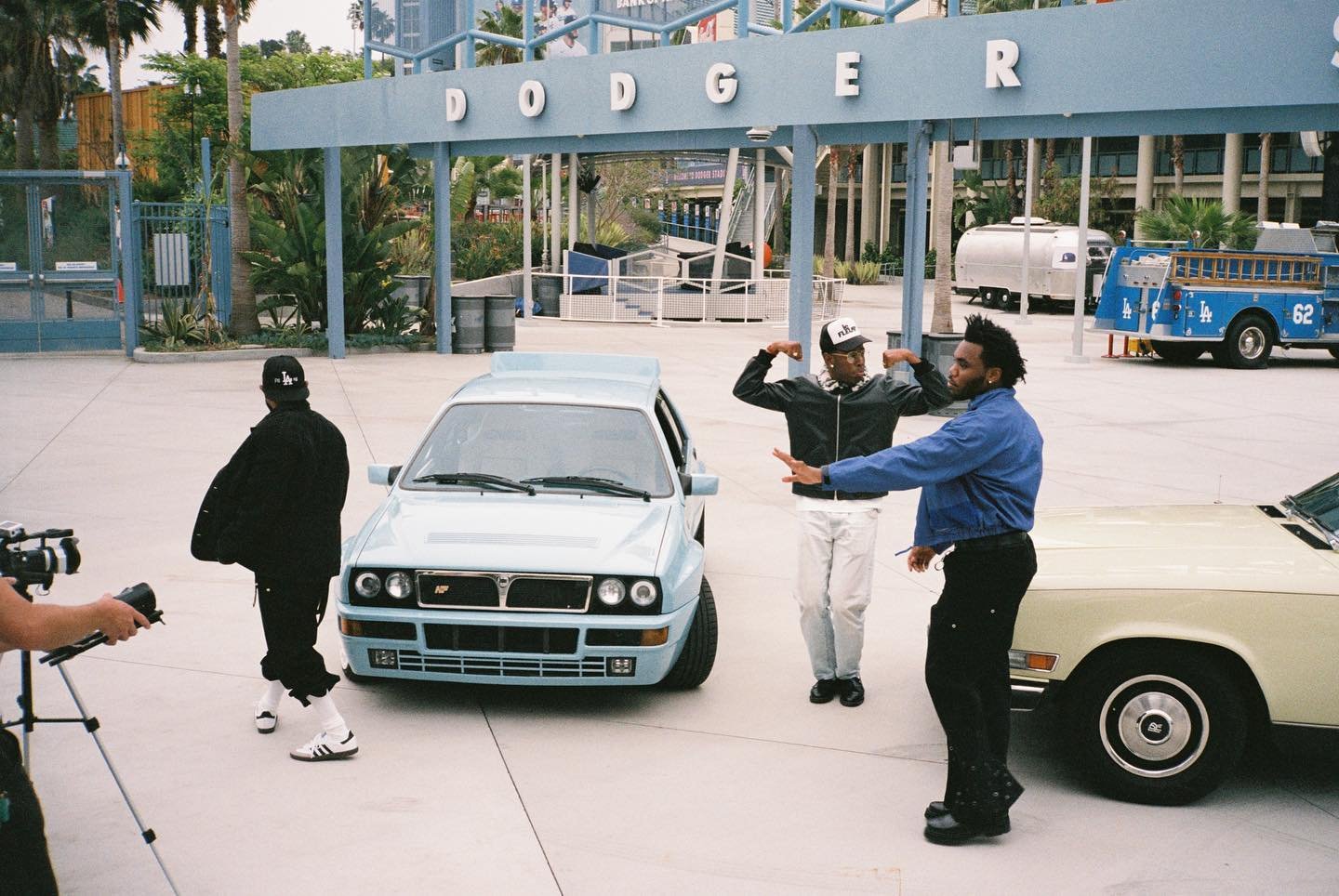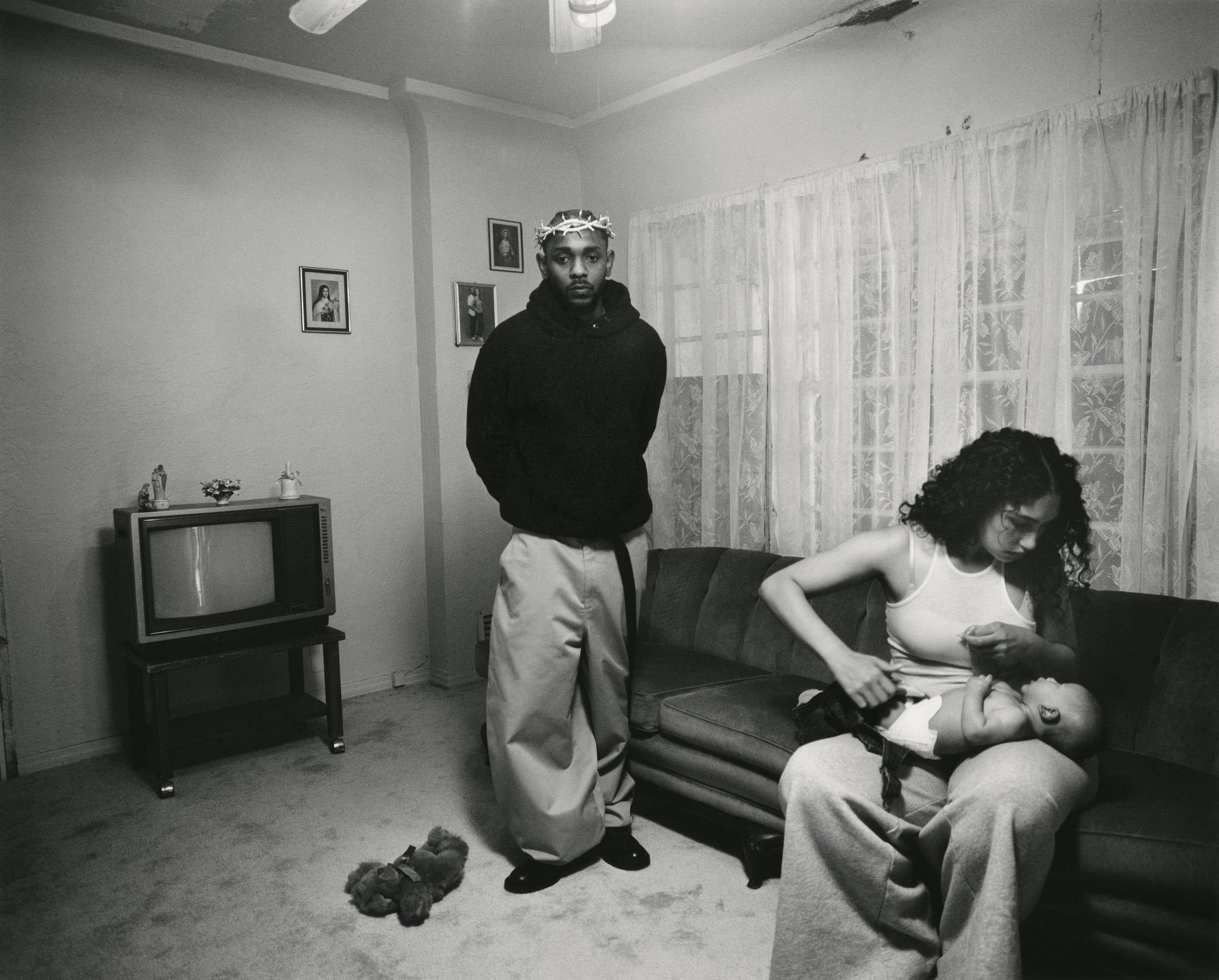How Mr Morale and The Big Steppers, CHROMAKOPIA and a New Era of Introspective Rap Reflect an Evolving Hip-Hop Landscape
by Matthew Becerra
Photo by @ShotOnFilmTho/Jasper Dolphin
In today’s hip-hop scene, vulnerability and self-reflection are increasingly taking center stage as artists reveal their innermost battles and insecurities on highly public platforms. Albums like Kendrick Lamar’s Mr. Morale & The Big Steppers and Tyler, The Creator’s CHROMAKOPIA are redefining what it means to be a top-tier rapper, as Lamar and Tyler embrace transparency, delving into themes of mental health, family trauma, and personal growth. With younger generations watching, the effect of this open-book approach could mark the dawn of a new introspective era in hip-hop—one where emotional expression becomes not just accepted but celebrated.
Kendrick’s Pre-Album Reflection and the Pursuit of Authenticity
In the lead-up to Mr. Morale & The Big Steppers, Kendrick Lamar offered fans a rare look into his mindset. “I spend most of my days with fleeting thoughts. Writing. Listening. And collecting old Beach cruisers. The morning rides keep me on a hill of silence,” he wrote. For Lamar, who often isolates himself from distractions like phones, the creative process is a balance between introspection and solitude. In his words, “Love, loss, and grief have disturbed my comfort zone, but the glimmers of God speak through my music and family.”
This quiet rumination laid the foundation for Mr. Morale, an album where he confronts themes of growth, vulnerability, and transformation. Looking forward to his final chapter with Top Dawg Entertainment, Lamar expressed gratitude for his label family, writing, “The Struggles. The Success. And most importantly, the Brotherhood. May the Most High continue to use Top Dawg as a vessel for candid creators.” This sense of closure and readiness to pursue “life’s calling” after his 17-year journey with TDE shines through in the album’s emotional depth and honesty.
Photo from Tyler, The Creator’s video “NOID”
Tyler’s CHROMAKOPIA and the Search for Balance
In CHROMAKOPIA, Tyler, The Creator explores similarly introspective themes. In tracks like “Tomorrow,” he contemplates aging, family expectations, and career versus personal life. He raps about feeling the weight of expectations to settle down and start a family, questioning whether he should continue to focus on his creative career or pivot to a more grounded life path. His lyrics in “Tomorrow,” where he ruminates on his friends' family photos versus his own memories of luxury, reflect the growing tension between independence and maturity in his life: “They sharing pictures of these moments, shit is really cute / And all I got is photos of my 'Rari and some silly suits.”
In “Hey Jane,” Tyler brings listeners into the deeply personal realm of an unexpected pregnancy. The song narrates the difficult, sometimes conflicting emotions he and his partner face about potentially raising a child, even as Tyler expresses his doubts about readiness for fatherhood. Lines like, “This ain’t my lifestyle, never had no scare in my life 'til now / Ain’t in the space to raise no goddamn child” illustrate his emotional conflict and the societal pressures surrounding family, responsibility, and success.
Unpacking Trauma: The Power of Self-Disclosure in Hip-Hop
In Mr. Morale, Kendrick uses his platform to dissect deeply personal issues, addressing family dynamics and generational trauma. “Father Time” tackles toxic masculinity and its effects on Lamar’s upbringing, with lines like “Daddy issues hid my emotions, never expressed myself,” a rare acknowledgment of the emotional weight Lamar carries. This level of self-examination is not just raw but revolutionary; it mirrors the type of courage that has traditionally been rare in mainstream hip-hop.
Similarly, Tyler’s “Like Him” on CHROMAKOPIA shows Tyler reflecting on the absence of his father and his identity as a man, remarking, “Mama, I’m chasin’ a ghost, I don’t know who he is.” Tyler’s exploration of familial identity and expectations reveals a sensitive side that was once scarce in his earlier works, aligning him with a new wave of rappers willing to tackle introspective themes head-on.
Photo by Renell Medrano
A New Era: The Rise of Vulnerable Storytelling
Together, Kendrick’s Mr. Morale and Tyler’s CHROMAKOPIA represent a significant shift. This trend toward introspective rap is not only helping destigmatize mental health discussions but is also creating space for conversations about trauma and personal growth in a genre traditionally seen as tough and unyielding.
Songs like “Count Me Out” from Kendrick’s album reveal personal battles with self-worth and responsibility, portraying the immense pressure he feels to live up to expectations placed upon him. Tyler’s “Noid,” in contrast, highlights his experiences with paranoia, fame, and surveillance, capturing the downside of success and the isolation it can bring. These songs send a powerful message: vulnerability is strength, and self-reflection is a new form of leadership in the genre.
Potential Influence on Future Generations of Hip-Hop
This introspective approach signals a larger shift within the genre. As younger artists rise, they are exposed to examples of rap that prioritize self-awareness and healing.
Kendrick Lamar, Tyler, and other introspective artists are reshaping the hip-hop landscape. Their commitment to open expression is poised to inspire a generation of rappers who are unafraid to share their innermost thoughts and traumas. In doing so, they are redefining what it means to succeed in hip-hop, shifting the paradigm from fame and bravado to one of authenticity and emotional honesty.


